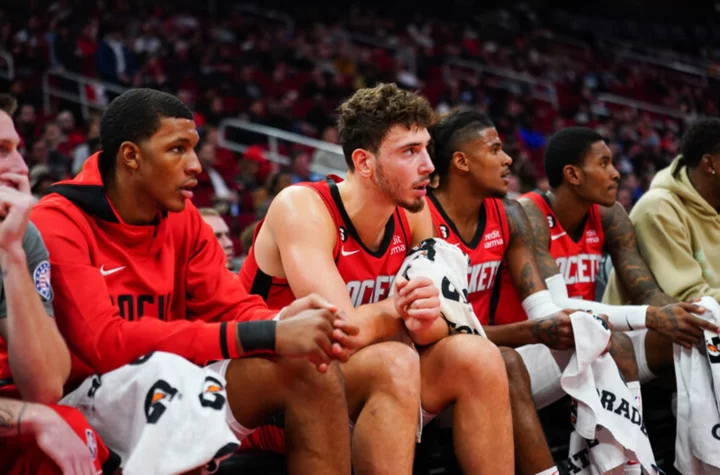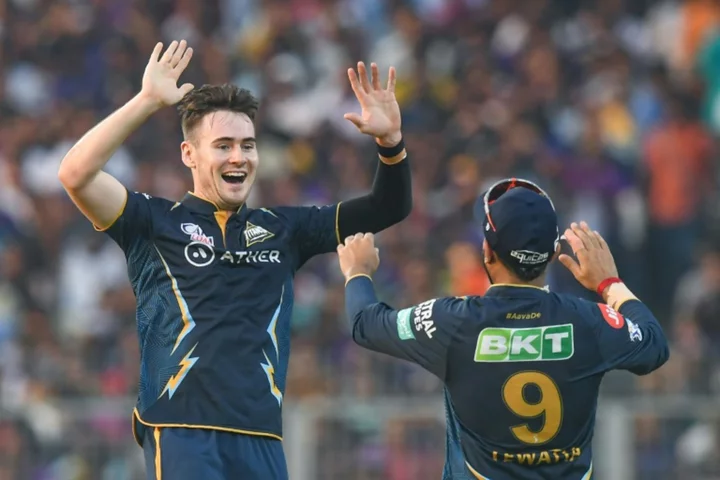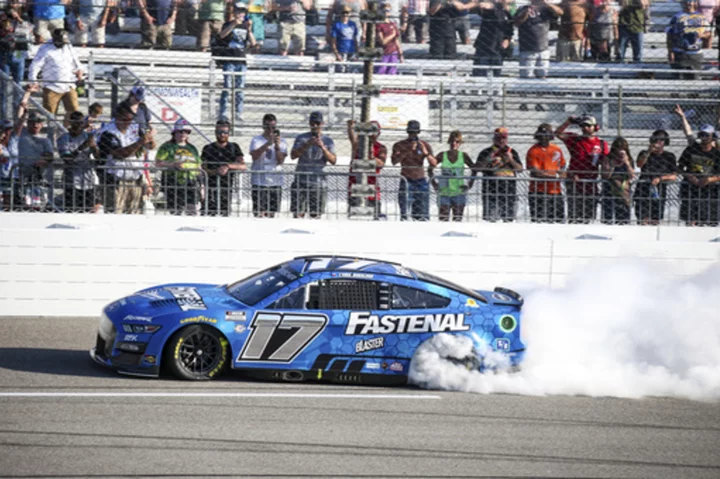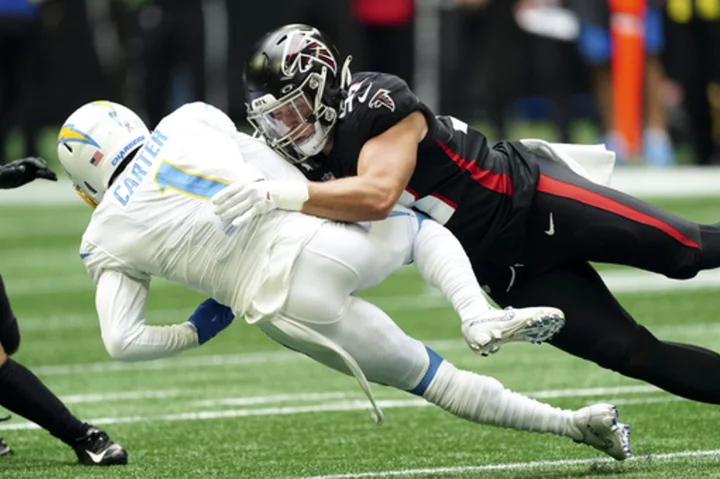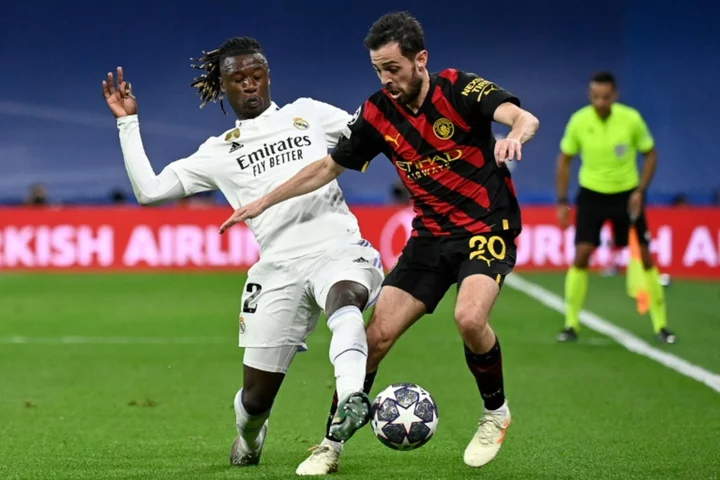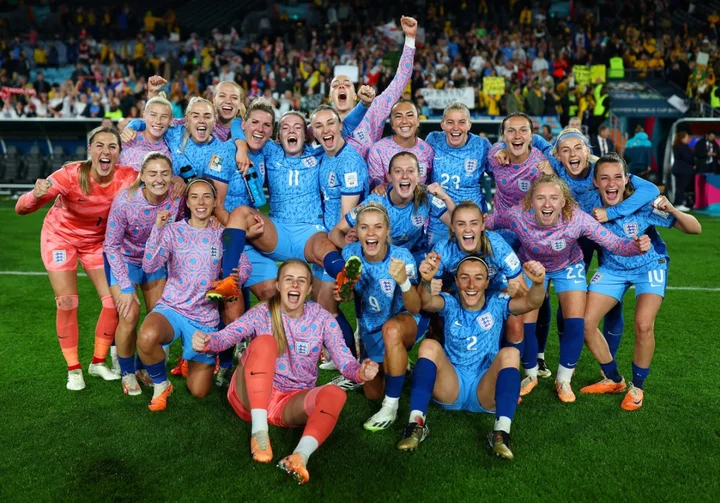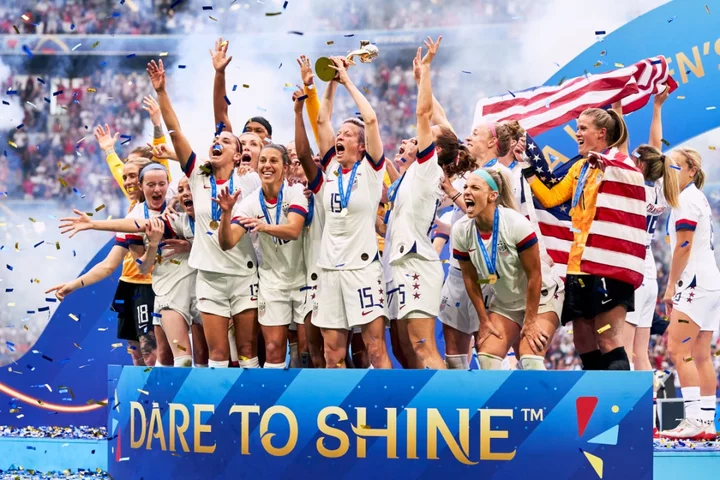The Houston Rockets spent big in free agency to take the next step toward contention under new head coach Ime Udoka. The lineup will look dramatically different compared to last season as a result.
The Houston Rockets are eager to exit the NBA basement. Fresh off a 22-win season that landed them the No. 4 pick in June's NBA Draft, Houston spent almost $250 million to acquire the services of Fred VanVleet, Dillon Brooks, and Jock Landale in free agency.
It's not common for a rebuilding team to spend so extensively on mid-tier free agents, and yet the Rockets are hoping to make a fast pivot toward contention. After years of toiling under the wayward leadership of Stephen Silas, the Rockets' young core is in dire need of direction. New head coach Ime Udoka is qualified to supply it; he's one of the best defensive minds in the NBA and a proven player's coach. Jayson Tatum, Marcus Smart, and virtually the entire Celtics roster still speak glowingly of him.
Given the landscape of the Western Conference, it's fair to wonder if the Rockets are spending too much, too soon. Houston salary-dumped several promising young players to make space for their new acquisitions and it's still hard to picture a path to consistent winning basketball for the current roster.
And yet, the Rockets have a young core worth believing in. Jalen Green, Amen Thompson, Alperen Sengun, Jabari Smith Jr., Tari Eason, Cam Whitmore — that's a loaded group of teenagers who all have promising NBA futures. If the vets can provide guidance as Houston's youth movement takes shape, perhaps all that money ends up paying dividends. Houston can still play the long game, and no contract is untradeable.
Either way, the Rockets will look different next season and the changes are largely positive on paper. How much of a dent it makes in the win column is yet to be seen, but Houston has a very deep roster with a lot of talented players ready to take off.
Let's dive into the rotation.
Houston Rockets starting point guard: Fred VanVleet
Three years and $130 million typically gets you the starting job. The Rockets are going to rely heavily on Fred VanVleet, not only as a scorer and a playmaker, but as a veteran in the locker room who can show younger players how to approach the game with professionalism and the proper competitive spirit.
VanVleet's résumé speaks for itself. Undrafted out of Wichita State, VanVleet has spent seven years in the NBA. He has a championship and an All-Star appearance to show for it. Now, he will look to impart his wisdom on Houston's younger core. He will also be the primary fulcrum of Ime Udoka's offense, a veteran with considerable freedom to create for teammates and unleash his trademark pull-up 3 on unsuspecting defenders.
It's fair to wonder how VanVleet's production will hold up relative to his contract; he's a 6-foot guard with a career field goal percentage of 40.2 and there's a lot of injury history to concern oneself with. That said, VanVleet is still one of the best volume pull-up shooters in the NBA and he averaged 7.2 assists compared to only 2.0 turnovers with the Raptors last season. His ability to set the table and stretch the defense will undeniably benefit those in his orbit.
Defense has also been a calling card of VanVleet's in the past, but he's limited positionally by his size and declining athleticism. He will communicate and operate well within a team context, but smart offenses are going to target VanVleet on switches and squeeze until Udoka has to make tough decisions — especially if the Rockets actually manage to sneak into the postseason picture.
Primary backup point guard: Amen Thompson
It will be interesting to see how long the Rockets can justify bringing Amen Thompson off the bench. The VanVleet signing complicates the matter — you can't really bench him after that contract, and Jalen Green has a certain stature within the organization as the former No. 2 pick — but Thompson is probably the best long-term prospect on Houston's roster.
At 6-foot-7, Thompson might be the best pure athlete in the NBA next season. He goes from zero to 60 in a flash, scorching defenders with his blistering first step before subsequently keeping them off-balance with seamless changes of speed and direction. Thompson glides across time and space like few players in the NBA, and that's before he even decides to elevate around the rim.
Thompson also happens to be one of the best passers in recent NBA Draft history. The big knock is his lack of a jumper, but he's going to work hard to improve and defenses will have trouble keeping him out of the paint no matter how aggressively they sag off. He's versatile enough to start next to VanVleet and Green, but that would still complicate matters further down the lineup.
Other players who could receive minutes at point guard: Kevin Porter Jr., Aaron Holiday
Houston Rockets starting shooting guard: Jalen Green
The No. 2 pick in the 2021 NBA Draft, Jalen Green's first two seasons have been something of a disappointment. He put up the raw counting stats last season — 22.7 points and 3.7 assists on .416/.338/.786 — but his shot selection and generally inefficient approach have been a problem.
It will be fascinating to see how Green develops under Ime Udoka. A big worry around Houston the last couple years has been the lack of structure and discipline under Stephen Silas. Green was given free rein over the offense and seldom punished for wonky shot selection, whereas (better) teammates were essentially shut out of the offense altogether.
Projecting forward, there's still plenty to be excited about with Green's NBA future. He's a one-of-one athlete, capable of shifting gears and exploding downhill on a dime. His first step and ability to create space with his handle is genuinely special and there's every reason to believe Green can still achieve stardom in the NBA.
That said, his on-court approach will have to change, and it will have to change fast. He has been a terrible defender over the last two years; Udoka is probably going to have a shorter leash than Silas, especially if Houston has allusions of contending in the West. Thompson is going to light an immediate fire under Green, and the latter is going to feel that pressure. Not to mention Kevin Porter, another starting-caliber guard who's hitting the bench in Green's favor, presumably.
Green could be one of the best scoring guards in the NBA, especially if he learns to better balance his scoring acumen with creating for teammates, but it will take real effort and a priorities shift from the 21-year-old.
Primary backup shooting guard: Kevin Porter Jr.
Kevin Porter Jr. now enters the race for Sixth Man of the Year. He averaged 19.2 points and 5.7 assists on .442/.366/.784 splits as Houston's primary creator last season. While there have been myriad concerns expressed over the years about Porter's attitude toward winning and his conduct in the locker room, it's hard to deny the cold, hard facts of his production.
Now, Porter is far from perfect. He can fall prey to tunnel vision and he's frequently a sieve on defense despite his promising physical dimensions. Maybe a smaller role with more veteran leadership and a respected head coach will get him to focus more on the small details. Porter's raw talent is without question, and there's a world in which he's still good enough to start alongside Fred VanVleet. Not many guards possess Porter's knack for changing speeds and shaking defenders off the bounce. The man is shifty.
Other players who could receive minutes at shooting guard: Amen Thompson, Dillon Brooks
Houston Rockets starting small forward: Dillon Brooks
Here's where matters get a wee bit complicated for the Rockets if Amen Thompson is too good to bring off the bench. Dillon Brooks could be a tremendous sixth man, but he evidently wants to be a featured player on offense and the Rockets gave him $86 million guaranteed over four years. So, there's incentive on Brooks' part and Houston's part to not bench him.
In the short term, however, starting Brooks is the easy move. The contract isn't that exorbitant under the rising cap, honestly, and Brooks can absolutely impact winning and change the culture around Houston. He made second team All-Defense last season and it was well deserved. The Rockets paid a premium for one of the best wing defenders in the NBA. That's not so crazy.
Brooks is a definite tone-setter. He will compete relentlessly on every possession and give the Rockets their long-missing answer to the best offensive engines in the NBA. Brooks is remarkably strong at 6-foot-7 and he can comfortably toggle between one through four depending on where the priority matchups lie.
The offensive end is the big question mark for Brooks, who can no doubt score the basketball. It's a question of how efficiently he can score the basketball; last season his field goal percentage dipped below 40 percent and he hasn't broken the league average from 3-point range since 2020. Brooks takes plenty of 3s, but that needs to be his primary focus in Houston. Hopefully Ime Udoka can quickly and forcefully define Brooks' role as a 3-and-D wing. VanVleet, Green, Thompson, and Porter should be the Houston players generating the bulk of the offense.
Primary backup small forward: Jae'Sean Tate
Jae'Sean Tate avoided the Rockets' peripheral fire sale and he should be cemented as the team's primary wing reserve next season. Kelly Iko of The Athletic reports that Tate is considered an "important piece" of Ime Udoka's puzzle, and that he has been an early defensive standout in summer workouts.
Listed at 6-foot-5, Tate has been used all over the floor for Houston in recent years. He's probably not a true five-position defender, but Tate can hang with guards on the perimeter and wage battle with bigger players in the frontcourt. He shouldn't get too many true "small-ball center" minutes with the personnel elsewhere on Houston's roster, but he can toggle comfortably between either forward spot while offering decent rim finishing and passing for his position. The 3-point shot is there, but it could stand to get better.
Other players who could receive minutes at small forward: Cam Whitmore, Amen Thompson, Jalen Green, Kevin Porter Jr., Jeff Green
Cam Whitmore was universally considered a top-10 prospect in June's NBA Draft. He was the No. 6 player on the FanSided board. He fell into the Rockets' lap at No. 20, a miracle for a Houston team still looking for its next true star. There's a world in which Whitmore eventually emerges as that next star.
The Villanova product will probably be a victim of depth in his rookie season, but he won MVP at Summer League and the talent is undeniable. If he can win over Udoka with his defense as a bulky 6-foot-7 power athlete, that could spur him to more minutes early on. Offensively, Whitmore is a good enough 3-point shooter and he's nearly impossible to keep out of the paint once he's rumbling down the lane. His strength and first step combo has been compared to Anthony Edwards, which is setting the bar way too high holistically, but it does speak to the absurdity of Whitmore's draft-night tumble.
Houston Rockets starting power forward: Jabari Smith Jr.
The No. 3 pick last summer, Jabari Smith Jr.'s rookie season didn't go entirely to plan. Originally thought to be Orlando's favorite target at No. 1, Smith fell a couple spots to Houston and ultimately struggled to shape his NBA identity. He was probably a victim of Houston's lack of structure and discipline, same as everybody else, but there's work to be done.
Smith has tremendous physical tools at 6-foot-10 with a 7-foot-1 wingspan. He displayed real upside as a weak-side rim protector and his potential as a switchable defensive big is what initially drew Houston to him on draft night. Where Smith really struggled was the offensive end. Pitched as one of the best shooters in the draft following a fruitful season beyond the arc at Auburn, Smith's jumper simply did not translate.
He shot 40.8 percent from the field and 30.7 percent from deep. He averaged the same number of assists as he did turnovers, and more often than not he looked lost within Houston's mimicry of a scheme. More structure and better playmakers like VanVleet and Thompson should help Smith, who was never a master of self-creation. The mechanics of his jumper remain smooth and he should develop into a consistently impactful defender over time, maybe even as soon as next season.
That said, Smith will have to prove his mettle on the offensive end to live up to expectations as a top-three pick. He didn't just struggle beyond the arc last season. He was a poor finisher around the rim and his in-between game amounted to little more than the occasional flash. Smith looked quite good in Summer League, but most sophomores do. How he looks in the major leagues will determine his role and future with the Rockets franchise.
Primary backup power forward: Tari Eason
Is Tari Eason the better/player prospect here? It's certainly possible. The LSU product shined in his rookie season and he looks similarly primed for success in year two after a brief but successful run in Summer League. Eason is a whirlwind presence on the defensive end, battling with intensity at the point of attack and skewering offenses with his activity level away from the ball.
At 6-foot-8, Eason is built strong with the ability to switch two through five. He crashes the glass and is unafraid to sacrifice his body for the greater good. He has a ways to go offensively, but he shot more efficiently across the board than Smith (.448/.343/.752) and he's a sneaky good passer for his position. Eason loves to run the floor and he should be rewarded by Houston's up-tempo scheme, especially in second-unit groups with Amen Thompson, who's going to run like his life depends on it every possession.
Other players who could receive minutes at power forward: Jeff Green, Jae'Sean Tate, Cam Whitmore
The Rockets ponied up $6 million to steal Jeff Green away from the reigning champs in Denver. The 36-year-old has been steadfastly playing real minutes for his entire career, and next season should be no different. He's approaching the point of his career where he carries more value as a veteran leader than as an actual player — and the Rockets have a lot of young depth in the frontcourt — but Udoka is a coach, and coaches are always prone to cherishing wisdom and know-how on the court. Expect Green to get his quota of shocking poster dunks in next season.
Houston Rockets starting center: Alperen Sengun
Despite playing under a head coach who did not understand him, Alperen Sengun emerged as a legitimate fulcrum of Houston's offense last season. Now with Udoka taking over the reins, one has to imagine the Rockets will lean fully into Sengun's unique skill set as a playmaking center.
The Nikola Jokic comparisons have always been willful misfires, but Sengun does possess a fun blend of flare and competence as a passer. He sees the floor and processes the game at an extremely high level and Houston should be unafraid to orbit its offense around him.
Sengun can punish defenses any number of ways. He's comfortable facing up from the free throw line, where's a true triple threat. Sengun can handle in space and drive the lane, he can operate Al Horford-style as a playmaking hub from the elbow, or he can run simple pick-and-roll with Houston's array of talented guards. Sengun frequently passes cutters open underneath the basket and he's a balletic scorer in the post, capable of bullying smaller defenders with his strength or tiptoeing around bigger defenders with his elegant footwork.
He's certainly a unique player — Sengun doesn't possess much vertical or lateral pop at all, he's entirely reliant on craft and strength — and the defensive limitations are a huge concern. That said, Sengun is probably the best offensive prospect on the team aside from Thompson, and he has a real chance to be Houston's best player next season if the Rockets embrace the beautiful oddity of his flamboyant passing and dynamic post game.
Primary backup center: Jock Landale
The Rockets gave Jock Landale four years and $32 million to lure him away from Phoenix, with the final three years all non-guaranteed. That's a pretty penny and it speaks to how highly the Rockets value Landale, who was far and away Phoenix's best center in the playoffs last season.
The Aussie is a good stylistic change of pace behind Sengun: he's physical and fundamentally sound on defense, with a hulking 6-foot-11 frame and a no-nonsense attitude. He gets after it on the glass and he's unafraid to wage war in the post, no doubt a trait he acquired from years of playing against the brutal physicality of Australia's NBL. Landale could close a lot of games depending on how tight Sengun's leash is under Udoka. If the Rockets are trying to win games, Landale's defensive reliability is going to earn him important minutes in big matchups.
Other players who could receive minutes at center: Jabari Smith Jr., Boban Marjanovic

